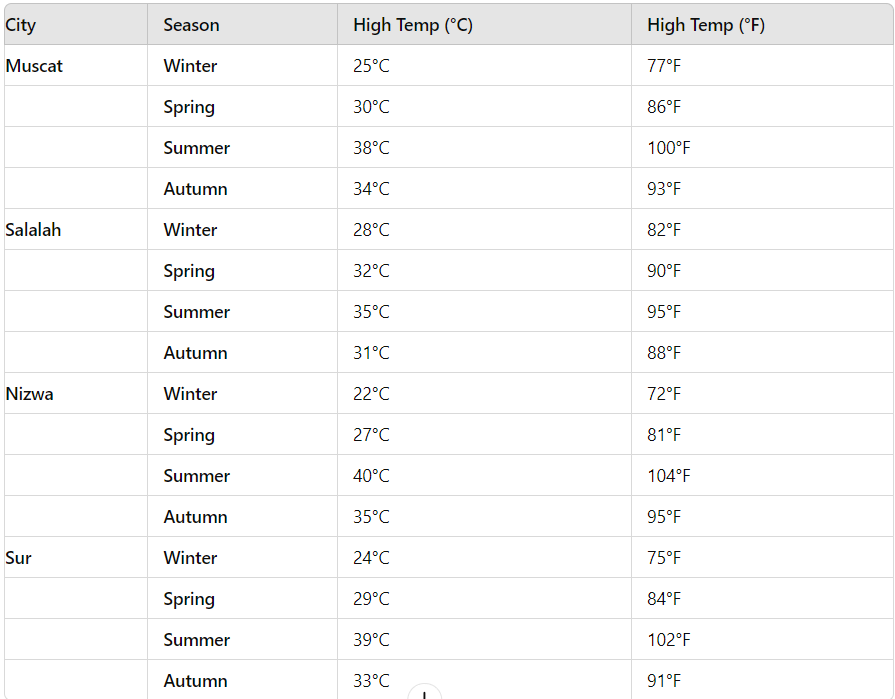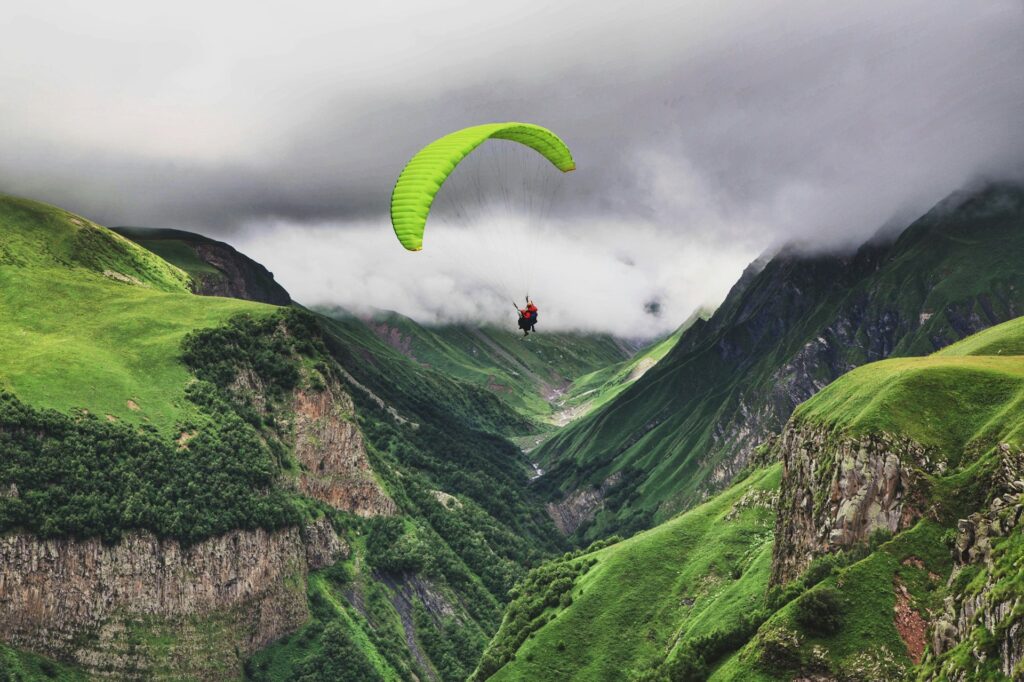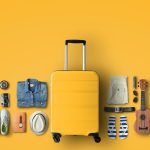Before Your Trip to Oman
Before traveling to Oman, it is important to prepare for a unique cultural and geographical experience. With stunning landscapes ranging from sandy deserts to lush green valleys, Oman offers a blend of traditional charm and modern comfort. Explore its historic castles, colorful bazaars and pristine beaches while respecting local customs and traditions. Make sure your travel documents are in order, familiarize yourself with the climate and prepare accordingly. Understanding the local currency, the basics of the language and basic health precautions will enhance your trip and make it a memorable and enriching adventure. Here’s what you need to consider to prepare for all these issues;
The Weather in Oman
Oman experiences a hot desert climate with extremely high temperatures during the summer months, often exceeding 40°C (104°F). The coastal areas, including Muscat, have a slightly milder climate due to the sea breeze, but the humidity can be quite high. The interior regions, especially the desert areas, can become intensely hot and dry.
In contrast, the winter months from November to March offer a more pleasant climate with temperatures ranging between 17°C and 25°C (63°F to 77°F). This period is considered the best time to visit Oman, as the weather is cooler and more comfortable for outdoor activities and exploration. The southern region of Dhofar, around Salalah, also experiences a unique monsoon season called Khareef from June to September, bringing cooler temperatures and lush greenery.

How to Dress in Oman – Seasonal Considerations
Spring
During spring in Oman, which spans from March to May, the temperatures start to rise, often reaching between 25°C and 35°C (77°F to 95°F). Lightweight, breathable clothing made of cotton or linen is advisable to stay comfortable in the heat. It is also important to dress modestly, covering your shoulders and knees, especially when visiting cultural or religious sites. A wide-brimmed hat, sunglasses, and sunscreen are essential to protect against the strong sun.
Summer

Oman’s summer, from June to August, can be extremely hot with temperatures often exceeding 40°C (104°F). Loose, light-colored clothing that covers most of your skin is recommended to protect against the sun and help keep you cool. Staying hydrated is crucial, so carrying a refillable water bottle is a good idea. For coastal areas, lightweight beachwear and swimwear are suitable but should be kept for beach areas only. Modesty is key when dressing in public spaces.
Fall
In fall, from September to November, temperatures start to drop slightly, ranging from 25°C to 35°C (77°F to 95°F). Similar to spring, lightweight and breathable clothing is ideal. This is also a great time to explore Oman’s natural landscapes, so comfortable walking shoes or sandals are recommended. Modest clothing remains important, especially when visiting traditional markets or religious sites. A light jacket might be useful for cooler evenings, particularly in the desert.
Winter
Winter in Oman, from December to February, is the most pleasant season with temperatures ranging between 17°C and 25°C (63°F to 77°F). Light layers are recommended, including long-sleeved shirts and pants, as mornings and evenings can be cooler, especially in the desert and mountainous regions. A light jacket or sweater is useful for the cooler nights. This season is perfect for outdoor activities, so pack comfortable and practical clothing for hiking or exploring. As always, maintaining modesty in your attire is important to respect local customs.
The Currency in Oman

The official currency in Oman is the Omani Rial (OMR), which is further divided into 1,000 baisa. The Omani Rial is a strong and stable currency, with banknotes available in various denominations, including 1, 5, 10, 20, and 50 rials, and coins in smaller denominations of baisa. It’s advisable to carry some local currency for small purchases, especially in rural areas or at traditional markets where credit cards may not be accepted. ATMs are widely available in urban areas, and major credit cards are accepted in most hotels, restaurants, and larger stores. However, for convenience, having cash on hand for tips, taxis, and smaller transactions can be very useful. The exchange rate is relatively stable, but it’s always a good idea to check the current rate before exchanging money.
Which Currency Can Tourists Use in Oman?
Tourists in Oman primarily use the Omani Rial (OMR) for transactions. While the Rial is the official currency, some tourist-heavy areas, hotels, and major businesses may accept U.S. dollars (USD) for convenience. However, it’s always best to have local currency on hand for smaller purchases, local markets, and places off the beaten path. Credit and debit cards are widely accepted in urban areas, but cash is preferred in more remote locations.
Where to Exchange Money in Oman?
Money can be exchanged in Oman at various locations for tourists. Banks and authorized exchange offices are the most reliable places for currency exchange, offering competitive rates and ensuring security. Airports also have exchange counters for immediate cash needs upon arrival, although rates might be less favorable compared to banks. Hotels in major cities often provide currency exchange services for their guests, but this may come with higher fees. ATMs are widely available and offer the convenience of withdrawing Omani Rials directly, usually at competitive exchange rates. For the best rates and security, using banks and authorized exchange offices is recommended.
Tips for Exchanging Money in Oman
When exchanging money in Oman, it’s essential to keep a few tips in mind to ensure you get the best rates and avoid potential issues. First, always compare rates at different banks and exchange offices, as rates can vary significantly. Avoid exchanging money at airports unless necessary, as they often offer less favorable rates. Using ATMs to withdraw local currency can be convenient but be aware of any foreign transaction fees your bank might charge. It’s a good idea to notify your bank of your travel plans to avoid any issues with card transactions. Keep some smaller denominations for tips and small purchases, especially when visiting local markets. Finally, always count your money and request a receipt for every transaction to ensure accuracy.
The Language in Oman
The official language in Oman is Arabic, which is widely spoken and used in government, business, and daily communication. Omani Arabic, a dialect of Gulf Arabic, is the most commonly spoken variety. English is also widely understood and spoken, especially in urban areas, tourist destinations, and among younger generations. It is commonly used in business and commerce, and most signs, menus, and official documents are available in both Arabic and English.
In addition to Arabic and English, there are several other languages spoken due to Oman’s diverse expatriate population. These include Hindi, Urdu, and Swahili, reflecting the significant communities from South Asia and East Africa. While visiting Oman, knowing a few basic Arabic phrases can be helpful and is often appreciated by locals, but English will generally suffice for most interactions.
The Necessary Documents and Emergency Contacts
Visa and Passport for Oman
When traveling to Oman, ensuring your visa and passport are in order is crucial for a smooth entry. Your passport must be valid for at least six months from the date of entry into Oman. It’s advisable to have at least two blank pages in your passport for entry stamps.
Oman offers various types of visas, including tourist visas, which can often be obtained online through the Royal Oman Police eVisa website or upon arrival at certain entry points. Tourist visas typically allow for a stay of up to 30 days and can sometimes be extended. Some nationalities are eligible for visa-free entry or visas on arrival, so it’s essential to check the latest requirements based on your nationality.
Ensure you have all necessary documents, such as a return ticket and proof of accommodation, as these may be requested upon entry. Always verify current visa regulations and requirements with the Omani embassy or consulate in your country before traveling, as policies can change.
Travel Insurance
You must have travel insurance with a minimum medical, evacuation and repatriation coverage of US$50,000 covering all applicable dates of travel with the Tour Operator. This insurance must cover personal injury and emergency medical expenses. On the first day of each Tour, a representative of the Tour Operator will verify that you have sufficient insurance in place. You are strongly recommended to extend your coverage to include cancellation, curtailment, and all other expenses that may arise as a result of loss, damage, injury, delay or inconvenience while traveling. You acknowledge that insurance coverage is not included in the cost of any Tour offered by the Tour Operator, and you are required to obtain separate coverage at an additional cost. It is your responsibility to ensure that you have sufficient coverage and comply with the terms of the applicable insurance plans. You are responsible for advising your insurer of the type of travel, destination(s) and activities included in your booking so that the insurer may provide appropriate coverage.
Travel Vaccines for Oman
Before traveling to Oman, it’s important to ensure that you are up to date on routine vaccinations and consider additional vaccines specific to the region. Routine vaccinations include MMR (measles, mumps, rubella), DTP (diphtheria, tetanus, pertussis), varicella (chickenpox), polio, and your yearly flu shot. For travel to Oman, the CDC and WHO recommend the following vaccines:
Hepatitis A, Recommended for most travelers as it can be contracted through contaminated food or water. Hepatitis B, Recommended if you might be exposed to blood or other body fluids, such as through medical procedures. Typhoid, Especially important if you’re staying with friends or relatives, visiting smaller cities or rural areas, or if you’re an adventurous eater. Rabies, Recommended for travelers involved in outdoor and other activities in remote areas that might bring them into direct contact with bats and other mammals. Yellow Fever, Required if you are arriving from a country with a risk of yellow fever transmission.
Essential Emergency Numbers in Oman
Here are the essential emergency numbers in Oman,
- Police, 9999
- Ambulance, 9999
- Fire Department, 9999
- Civil Defence, 9999
For any emergency, dialing 9999 will connect you to the appropriate service in Oman.
Vegetarian, Vegan and Gluten-free Eating in Oman

In Oman, you can find vegetarian, vegan, and gluten-free options, especially in urban areas and larger hotels. Many Omani restaurants serve vegetarian dishes like rice and vegetable curries, lentil soups, and salads, and Indian and Middle Eastern eateries often have a variety of vegetarian choices. For vegan diets, options are more limited but still available, with vegetable kebabs, hummus, falafel, and fruit salads being common. Always check ingredient lists to avoid animal products. Gluten-free dining can be challenging, but some restaurants and hotels offer gluten-free options such as rice dishes and salads. It’s advisable to inform your server about your dietary needs to ensure a satisfying dining experience.
Do’s and Don’ts in Oman
Do’s in Oman
- Dress modestly, Wear conservative clothing that covers your shoulders and knees. Swimwear is acceptable at pools and beaches.
- Show respect, Use polite greetings and gestures, such as placing your right hand over your heart when greeting someone.
- Respect local customs, Follow local traditions and practices, especially during religious events like Ramadan.
- Ask for permission, Always ask before taking photos of people, especially in rural areas.
- Be mindful of public behavior, Public displays of affection are discouraged.
Don’ts in Oman
- Don’t engage in public displays of affection, Avoid kissing or hugging in public, as it is considered inappropriate.
- Don’t drink alcohol in public, Consumption of alcohol is restricted to licensed establishments and should not be done in public areas.
- Don’t offend religious practices, Refrain from discussing religion or making critical remarks about local beliefs.
- Don’t use your left hand, The left hand is considered unclean in Omani culture, so use your right hand for giving and receiving items.
- Don’t be noisy, Maintain a respectful volume in public places to avoid disturbing others.
What to Pack for Oman
Travel Adapter for Oman
For traveling to Oman, you will need a power adapter that is compatible with the local electrical outlets. Oman uses the Type G plug, which has three rectangular prongs in a triangular pattern. The standard voltage is 240V with a frequency of 50Hz.
Make sure to bring a Type G travel adapter to charge your devices. If your devices are not compatible with 240V, consider bringing a voltage converter as well to avoid damaging your electronics.
Wifi Access and Mobile Connectivity in Oman
In Oman, Wi-Fi access is commonly available in hotels, cafes, and many public areas. Most hotels and restaurants provide free Wi-Fi, though you might need to log in or register to use it. Public Wi-Fi is less widespread but can be found in some larger cities and tourist spots.
For mobile connectivity, purchasing a local SIM card is a convenient option. Major telecom providers like Omantel and Ooredoo offer prepaid SIM cards with various data plans. These can be easily acquired at the airport or local stores. Make sure your phone is unlocked and compatible with local network frequencies to ensure seamless connectivity during your stay.
In Your Suitcase
- Lightweight clothing, for the warm climate
- Swimsuit, for pool and beach activities
- Sunscreen, to protect your skin from the sun
- Travel adapter (Type G), to charge your devices
- Comfortable shoes, for walking and exploring
- Evening wear, for dining and upscale venues
- Personal toiletries, for daily hygiene
- Chargers for electronic devices, to keep your gadgets powered
- Voltage converter (if needed), for non-dual voltage devices
- Probiotics, to support digestive health
In Your Daypack
- Sunglasses, to protect your eyes from the sun
- Hat, for additional sun protection
- Water bottle, to stay hydrated throughout the day
- Snacks, for quick energy boosts
- Camera or smartphone, to capture moments and navigate
- Power bank, to charge devices on the go
- Travel guide or map, for navigation and local information
- Hand sanitizer, for maintaining hygiene
- Lip balm, to prevent dry lips
- Lightweight scarf, for modesty in religious sites and added comfort.










